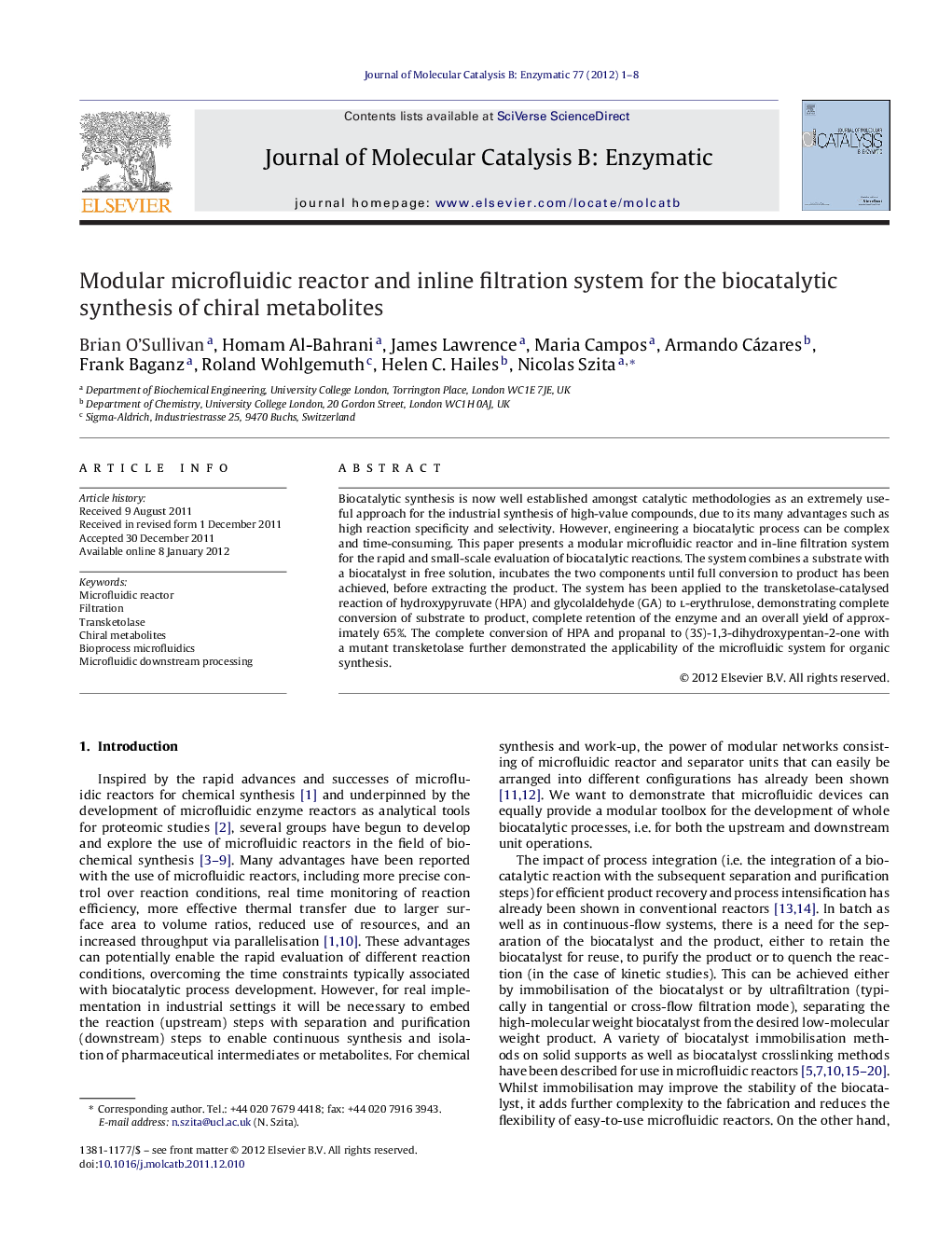| Article ID | Journal | Published Year | Pages | File Type |
|---|---|---|---|---|
| 70242 | Journal of Molecular Catalysis B: Enzymatic | 2012 | 8 Pages |
Biocatalytic synthesis is now well established amongst catalytic methodologies as an extremely useful approach for the industrial synthesis of high-value compounds, due to its many advantages such as high reaction specificity and selectivity. However, engineering a biocatalytic process can be complex and time-consuming. This paper presents a modular microfluidic reactor and in-line filtration system for the rapid and small-scale evaluation of biocatalytic reactions. The system combines a substrate with a biocatalyst in free solution, incubates the two components until full conversion to product has been achieved, before extracting the product. The system has been applied to the transketolase-catalysed reaction of hydroxypyruvate (HPA) and glycolaldehyde (GA) to l-erythrulose, demonstrating complete conversion of substrate to product, complete retention of the enzyme and an overall yield of approximately 65%. The complete conversion of HPA and propanal to (3S)-1,3-dihydroxypentan-2-one with a mutant transketolase further demonstrated the applicability of the microfluidic system for organic synthesis.
Graphical abstractFigure optionsDownload full-size imageDownload as PowerPoint slideHighlights► We present integration of up- and downstream microfluidic bioprocess development. ► The system has been used for rapid small-scale evaluation of biocatalytic reactions. ► Complete conversion of substrate to product was achieved in the microreactor. ► The downstream filter unit allows the integration of any membrane type. ► Results from the microfluidic system are scalable.
